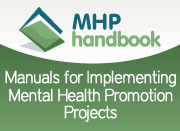The current financial and economic crisis creates risks for the mental health and well-being of people, and these need to be tackled. This was the outcome of a Round Table on "Reducing the Psychosocial Impact of the Financial and Economic Crisis", which the Commission organised in Brussels on Monday.
Participating in the event were research experts, representatives of the EU, Member States, regions, civil society, schools, the workplace and health professionals.
The round table found that the negative impact of the crisis on the health and well-being of people emerges only slowly. Member States will be affected in different ways. This makes it difficult to quantify the psychosocial harm. But some early figures from Latvia indicate for 2008 a 50% increase of first-time diagnoses of certain psychiatric disorders and a rise of suicide by 15%. This is in line with an increase of anxiety disorders and sleeping problems in Sweden during a crisis in the 90's and with observations in schools and workplaces. These effects increase the vulnerability to physical illness and heart disease. They can begin during a financial crisis, but may last long after the crisis has ended.
Marginalised population groups are especially at risk. Therefore the round table highlighted the need for promoting social justice through the crisis. Curbing increasing youth unemployment is also highly important. The crisis would not be a time to reduce resources for mental health care or social support nets. Instead, schools, workplaces and communities should, in the longer term, invest more in preventive action and promoting well-being.
Promoting and strengthening the EU's mental capital is also necessary because of demographic changes, which will force people to be even more flexible and productive. More research should be done to measure the economic cost of stress.
The Round Table event was part of the implementation of the European Pact for Mental Health and Well-being launched in 2008 at a high-level conference hosted by Commissioner Androulla Vassiliou in cooperation with Commissioner Vladimír Špidla. Under the Pact, a series of thematic conferences will be organised with Member States during 2009 and 2010. Furthermore, the Commission is funding research on the measurement of mental health problems in Europe to serve as basis for a technical discussion on defining possible indicators under the Open Method of Coordination on Social Protection and Social Inclusion.



